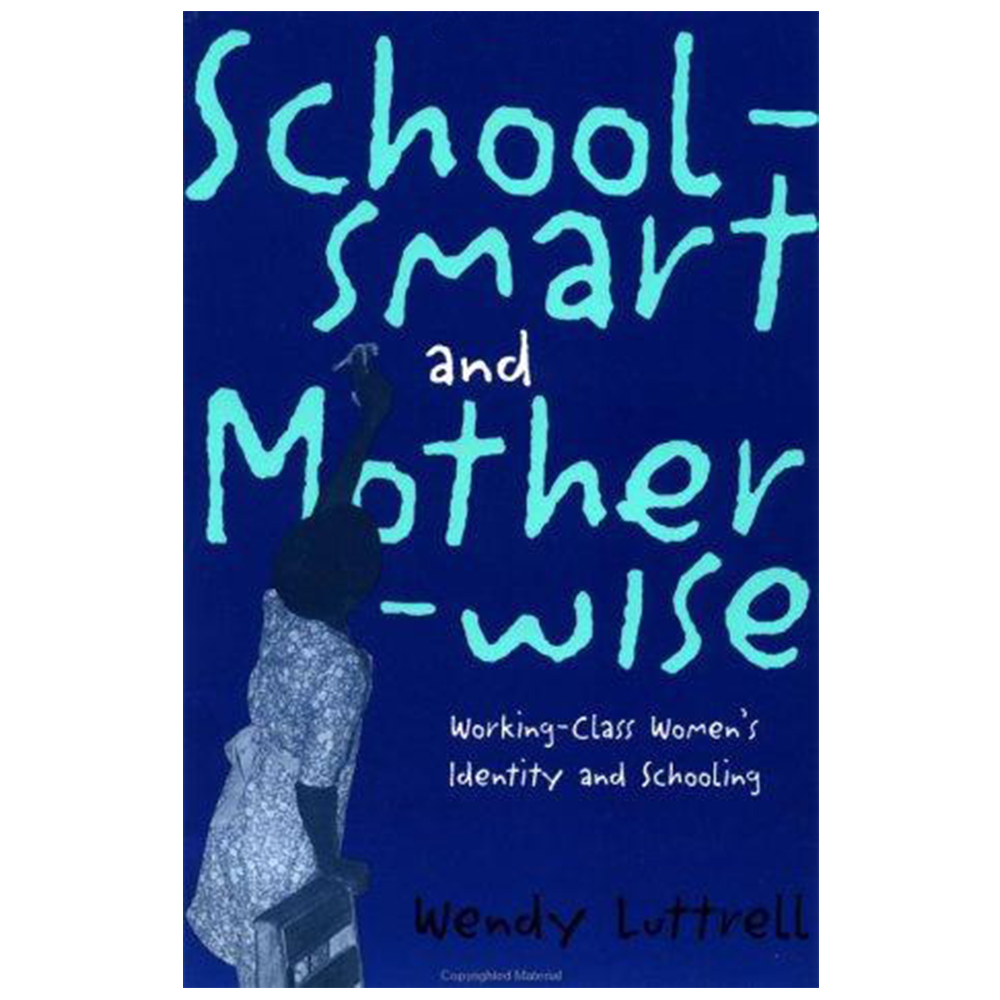Publications
Books
Children Framing Childhoods:
Working-Class Kids’ Visions of Care
by Wendy Luttrell; Policy 2020
Urban educational research, practice, and policy is preoccupied with problems, brokenness, stigma, and blame. As a result, too many people are unable to recognize the capacities and desires of children and youth growing up in working-class communities.
This book offers an alternative angle of vision—animated by young people’s own photographs, videos, and perspectives over time. It shows how a racially, ethnically, and linguistically diverse community of young people in Worcester, MA used cameras at different ages (10, 12, 16 and 18) to capture and value the centrality of care in their lives, homes, and classrooms.
Luttrell’s immersive, creative, and layered analysis of the young people’s images and narratives boldly refutes biased assumptions about working-class childhoods and re-envisions schools as inclusive, imaginative, and care-ful spaces. With an accompanying website featuring additional digital resources, this book challenges us to see differently and, thus, set our sights on a better future.
Video Recording of Zoom Book Launch in London May 2021
Video Recording of October 2020 Book Salon with Wendy Luttrell
Distributed by the University of Chicago Press
RECEIVE 20% OFF WITH THE PROMO CODE CFC20
Qualitative Educational Research:
Readings in Reflexive Methodology and Transformative Practice
by Wendy Luttrell; Routledge 2010
Qualitative Educational Research is a comprehensive anthology designed to deepen education students’ thinking about their qualitative research purposes, questions, and decision-making. Focusing on various epistemological, intellectual, and ethical conflicts in doing social analysis, thisreader invites researchers-in-training to explore why, from what perspective, for whose benefit, and with what stakes are research questions being posed. Drawing from her wealth of expertise executing and teaching qualitative research methods, scholar Wendy Luttrell has selected essays that focus specifically on the challenges of qualitative inquiry as they pertain to the field of education. These essays present multiple paradigms and perspectives in qualitative inquiry, including interpretivism, critical theory, cultural studies, feminist theories, critical psychology, and critical race theory. Reflexive writing assignments at the end of the volume expand readers’ understanding of the essays and guide students through developing their own research design.
Pregnant Bodies, Fertile Minds:
Gender, Race, And The Schooling Of Pregnant Teens
by Wendy Luttrell; Routledge 2003
In Pregnant Bodies, Fertile Minds Luttrell focuses on fifty girls enrolled in a model public school program for pregnant teens, Luttrell explores how pregnant girls experience society’s view of them and also considers how these girls view themselves and the choices they’ve made. She pays particular attention to how schools react to pregnant teens and what they are doing to help these vulnerable young women to achieve their education. Readers learn the real problems that pregnant teens are dealing with, and how society’s racial and class stereotypes continue to stigmatize and scapegoat them. These individual stories are accompanied by personal self-portraits that present a carefully detailed and powerfully moving picture of the issues these girls face everyday.
School-smart and Mother-wise:
Working-Class Women’s Identity and Schooling (Perspectives on Gender)
by Wendy Luttrell; Routledge 1997
School-smart and Mother-wise illustrates how and why American education disadvantages working-class women when they are children and adults. In it we hear working-class women–black and white, rural and urban, southern and northern–recount their childhood experiences, describing the circumstances that led them to drop out of school. Now enrolled in adult education programs, they seek more than a diploma: respect, recognition, and a public identity. Drawing upon the life stories of these women, Wendy Luttrell sensitively describes and analyzes the politics and psychodynamics that shape working-class life, schooling, and identity. She examines the paradox of women’s education, particularly the relationship between schooling and mothering, and offers practical suggestions for school reform.



